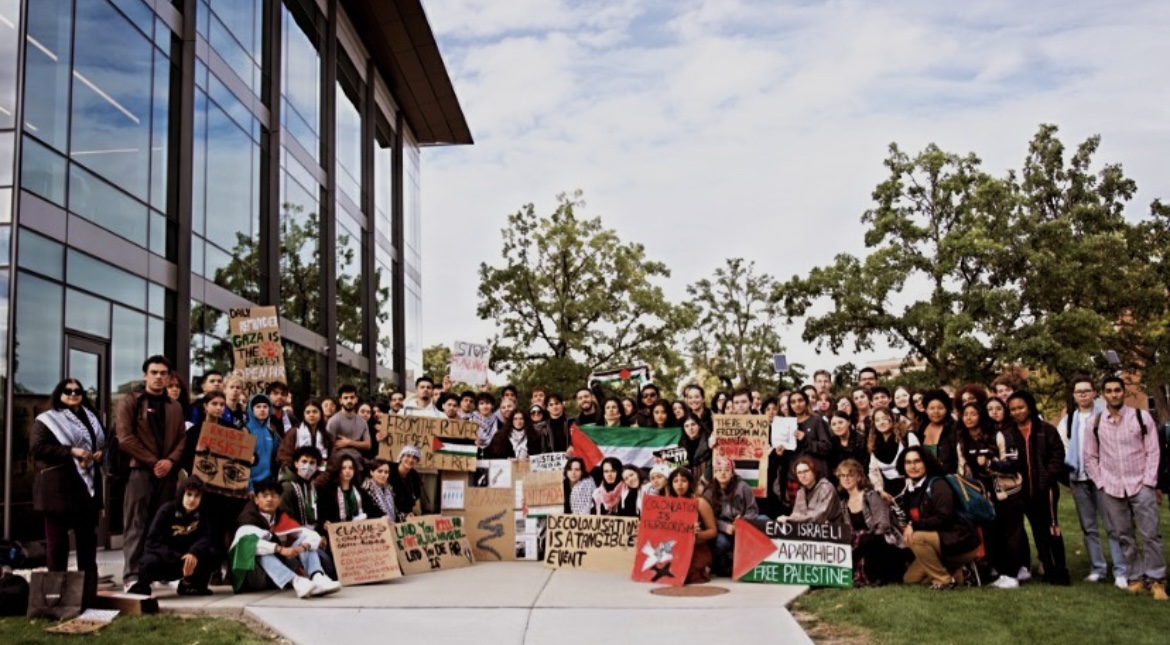The Intersection of College Athletics and Activism

Christian Hirschboeck ‘25
Sports Editor
Hirschboeckcia@lakeforest.edu
Sports and activism have a historically difficult relationship to break down because of the different stances people take on the combination of the two. There is a common belief that the two areas should stay separated from each other to focus on the quality of the sporting product, while others believe that activism is engrained within sports and cannot be separated.
Regardless of individual opinion on the matter, sports and activism have historically been connected. Carson Pickett was the first to ever play for the U.S. Women’s Soccer National Team with a limb difference in 2022. Serena and Venus Williams have continually challenged inequality in tennis while winning major titles in 1995 and 1994. Muhammad Ali gained a reputation for his work with civil rights and his stance against the Vietnam War in tandem with his famed boxing career. Jessie Owens went to the 1936 Olympics in fascist Germany and took four gold medals home to an environment that refused to accept him because of his race. These behavioral trends from athletes even go as far back as the ancient Olympians, specifically in the fourth century BCE, with many opening ceremony speeches focusing on the unification of Greece or other political ordeals.
While all of the mentioned instances came from professional athletes, that does not exclude the work done by those at the collegiate level. The world is just as politically tumultuous as it always has been, and given how colleges have long been a place of political discourse, the role of the athlete within the greater scheme of activism has grown, especially because of the role of social media.
This type of behavior is no stranger at Lake Forest College, and during the 2023-2024 academic year, the campus saw plenty of instances of advocacy for various causes. Regardless of what those causes specifically were, plenty of Lake Forest’s athletes took part in these strides for change. Recently, I took the time to speak with the Men’s Soccer’s Rayan Khalid-Malick on what being an activist and an athlete means to him.
Q: Do you think the school has treated you differently as an athlete because of how you’ve engaged in political discourse on campus, or vice-versa?
A: “One-hundred percent. I think in that capacity the school has treated me differently and it was super shocking to see. One of the first ways I saw it was just refusing to post my senior day video along with all the senior day videos on the school’s social media because I had the Palestinian flag wrapped around me. After having committed so much over the last four years to the school and the team I am part of, in one quick moment they felt like they could not be associated with me at all. Another way is how I was told I had to apologize or be concerned about getting internships and jobs after being vocal and loud, against zionists that came to a Palestinian solidarity stand. I was told by the athletics department that there was no other way. All my actions were in accordance with my freedom of speech, but clearly the school saw otherwise. Instead of having been supportive and have a moral code to which they held up to, the school has chosen to ignore and disregard me as a student and as an athlete.”
Q: Do you think Lake Forest’s athletes generally support their teammates who choose to openly advocate for various issues, or in your opinion do they more often choose to turn a blind eye? Does this behavior extend to the greater student body?
A: “It’s true that most athletes at Lake Forest, as well as members of the student body, have chosen to ignore or turn a blind eye to teammates advocating for various issues. This is because they feel unaffected and are afraid of offending people they might know. The question I would like to ask these people is “What moral code do you live with” and to use that moral code when you hear about things and instances. Ignorance isn’t bliss when it comes to thousands of innocent men, women, and kids being murdered every day. This holds true for the greater student body as well. Since it does not directly affect them or someone they know, most tend to look the other way when you talk about issues that actually matter, and it is so disappointing to see.”
Q: Some may believe that college athletes, especially at the Division III level, cannot enforce change at the same level that professional athletes can, thus believing that even attempting to do so is pointless. What would you say about that idea?
A: “I believe change at any level is hard, much less at a level where we do not receive any media coverage or have a public platform. However, letting that be our sole reason behind not fighting for social change is a sorry excuse. Change isn’t just big policy change, or uprooting the system. Change is also awareness and standing up for what you believe is right. Hence trying to promote change even at the Division III level is something that athletes should strive for.”
